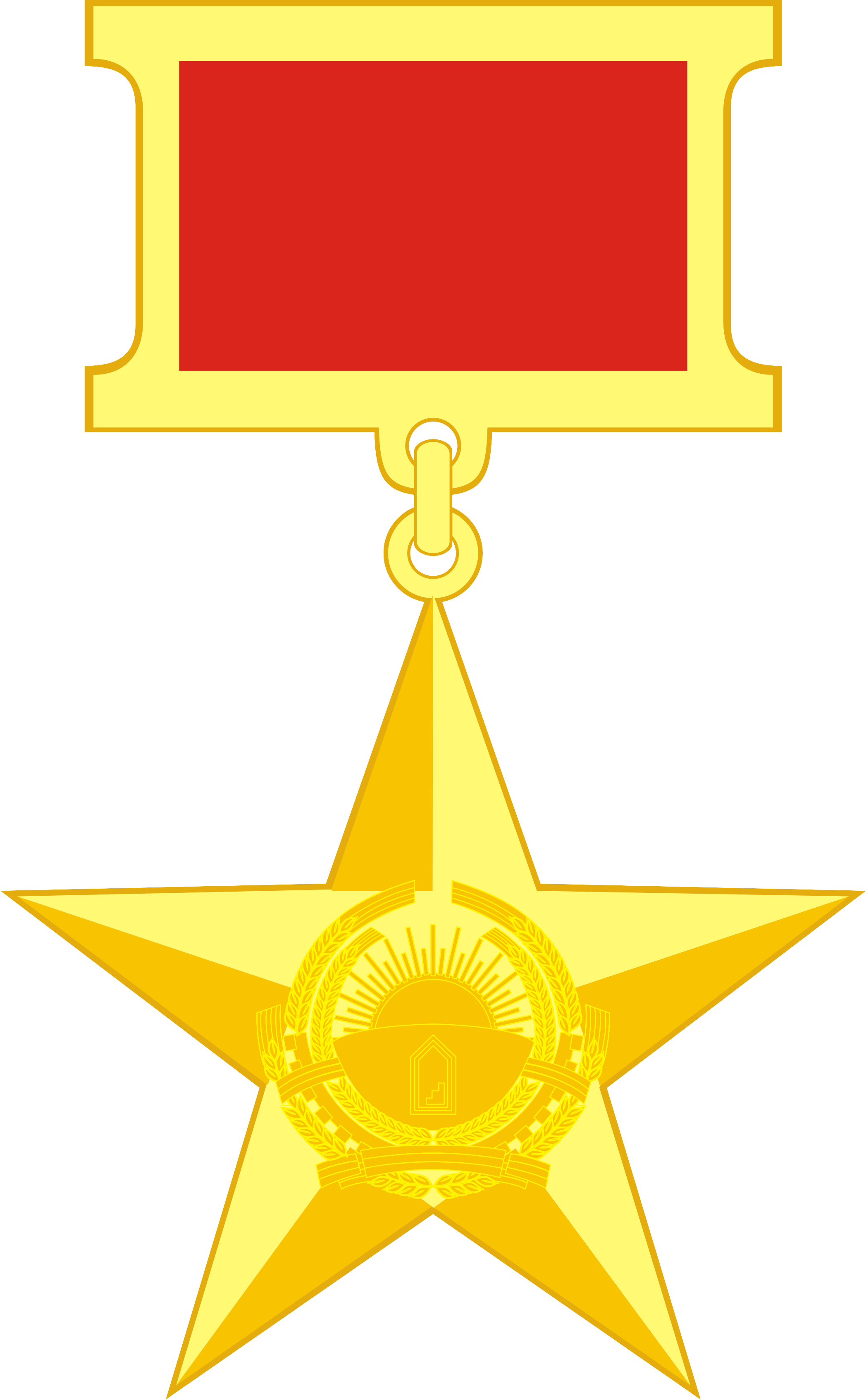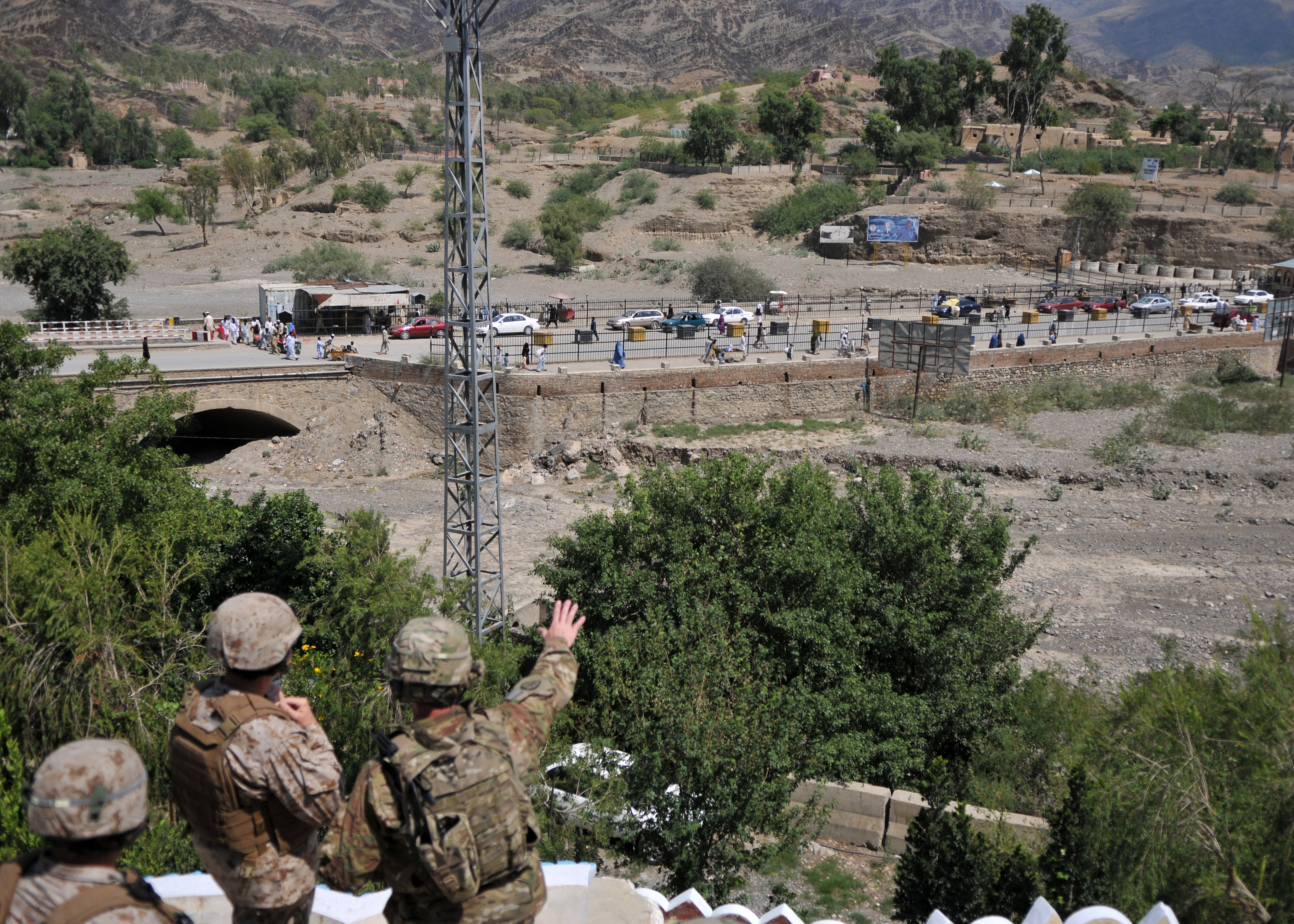|
Geneva Accords (1988)
The Geneva Accords were the agreements on the settlement of the situation relating to Afghanistan, were signed on 14 April 1988 at the Geneva headquarters of the United Nations, between Afghanistan and Pakistan, with the United States and the Soviet Union serving as guarantors. The accords consisted of several instruments: a bilateral agreement between the Islamic Republic of Pakistan and the Republic of Afghanistan on the principles of mutual relations, in particular on non-interference and non-intervention; a declaration on international guarantees, signed by the Soviet Union and the United States; a bilateral agreement between Pakistan and Afghanistan on the voluntary return of Afghan refugees; and an agreement on the interrelationships for the settlement of the situation relating to Afghanistan, signed by Pakistan and Afghanistan and witnessed by the Soviet Union and the United States. The agreements also contained provisions for the timetable of the withdrawal of Soviet tro ... [...More Info...] [...Related Items...] OR: [Wikipedia] [Google] [Baidu] |
Eduard Shevardnadze
Eduard Ambrosis dze Shevardnadze ( ka, ედუარდ ამბროსის ძე შევარდნაძე; 25 January 1928 – 7 July 2014) was a Soviet and Georgian politician and diplomat who governed Georgia (country), Georgia for several non-consecutive periods from 1972 until his resignation in 2003 and also served as the final Soviet Minister of Foreign Affairs, Soviet minister of foreign affairs from 1985 to 1991. Shevardnadze started his political career in the late 1940s as a leading member of his local Komsomol organisation. He was later appointed its Second Secretary, then its First Secretary. His rise in the Georgian Soviet hierarchy continued until 1961 when he was demoted after he insulted a senior official. After spending two years in obscurity, Shevardnadze returned as a First Secretary of a Tbilisi city district, and was able to charge the Tbilisi First Secretary at the time with corruption. His anti-corruption work quickly garnered the interest ... [...More Info...] [...Related Items...] OR: [Wikipedia] [Google] [Baidu] |
Mohammad Najibullah
Mohammad Najibullah Ahmadzai (6 August 1947 – 27 September 1996) was an Afghan military officer and politician who served as the second president of Afghanistan from 1987 until his resignation in April 1992, shortly after the Afghan mujahideen's takeover of Kabul. He was also the General Secretary of the People's Democratic Party of Afghanistan, General Secretary of the People's Democratic Party of Afghanistan (PDPA) from 1986 to 1992. After a failed attempt to flee to India, Najibullah remained in Kabul, and lived in the Afghanistan and the United Nations, United Nations headquarters until his assassination during the Taliban, Taliban's first Battle of Kabul (1992–1996), capture of Kabul in 1996. A graduate of Kabul University, Najibullah held different careers under the People's Democratic Party of Afghanistan (PDPA). Following the Saur Revolution and the establishment of the Democratic Republic of Afghanistan, Najibullah was a low profile bureaucrat. He was sent into exile ... [...More Info...] [...Related Items...] OR: [Wikipedia] [Google] [Baidu] |
1988 In Afghanistan
__NOTOC__ The following lists events that happened during 1988 in Afghanistan. As the Soviets begin to leave, the division between Afghan Marxists and Muslims becomes even sharper, and the fear of even bloodier fighting heightens. Leaders of the Pakistan-based Muslim insurgent groups vow to continue fighting until they topple the Marxist regime and proclaim Afghanistan an Islamic republic. Efforts by the government either to form a coalition or to bring King Mohammad Zahir Shah back from his exile in Italy failed. Incumbents * President: Mohammad Najibullah * Chairman of the Council of Ministers: Sultan Ali Keshtmand (until 26 May), Mohammad Hasan Sharq (starting 26 May) * Vice Presidents: Abdul Rahim Hatif, Mohammed Rafie, Abdul Hamid Mohtat and Abdul Wahed Sorabi (starting May) April 1988 Elections are held for a two-chamber National Assembly to replace the Revolutionary Council. Although the elections are boycotted by the Mujahideen, the government leaves vacant ... [...More Info...] [...Related Items...] OR: [Wikipedia] [Google] [Baidu] |
Treaties Concluded In 1988
A treaty is a formal, legally binding written agreement between sovereign states and/or international organizations that is governed by international law. A treaty may also be known as an international agreement, protocol, covenant, convention, pact, or exchange of letters, among other terms; however, only documents that are legally binding on the parties are considered treaties under international law. Treaties may be bilateral (between two countries) or multilateral (involving more than two countries). Treaties are among the earliest manifestations of international relations; the first known example is a border agreement between the Sumerian city-states of Lagash and Umma around 3100 BC. International agreements were used in some form by most major civilizations and became increasingly common and more sophisticated during the early modern era. The early 19th century saw developments in diplomacy, foreign policy, and international law reflected by the widespread use of treat ... [...More Info...] [...Related Items...] OR: [Wikipedia] [Google] [Baidu] |
Afghanistan–Pakistan Relations
Afghanistan and Pakistan are neighboring countries. In August 1947, the Partition of India, partition of British India led to the emergence of Pakistan along Afghanistan's eastern frontier; Afghanistan was the sole country to vote against Pakistan's admission into the United Nations following the latter's independence. Territorial disputes along the widely known "Durand Line" and conflicting claims prevented the normalization of bilateral ties between the countries throughout the mid-20th century. Afghan territorial claims over Pashtun-majority areas that are in Pakistan were coupled with discontent over the permanency of the Durand Line which has long been considered the international border by every nation other than Afghanistan, and for which Afghanistan demanded a renegotiation, with the aim of having it shifted eastward to the Indus River. During the Taliban insurgency, the Taliban has received substantial financial and logistical backing from Pakistan, which remains a signi ... [...More Info...] [...Related Items...] OR: [Wikipedia] [Google] [Baidu] |
Pakistan–Soviet Union Relations
Pakistan and the Soviet Union had complex and tense relations. During the Cold War (1947–1991), Pakistan was a part of Western Bloc of the First World and an ally of the United States, which was opposed to the Soviet-led Eastern Bloc of the Second World. The Soviets had opposed the partition of India and the creation of Pakistan. However, after Pakistan was established, in May 1948, both countries established relations and Soviet premier Joseph Stalin, in 1949, invited Pakistani prime minister Liaquat Ali Khan to visit Moscow, though Khan instead visited the United States in May 1950. Following Khan's assassination in 1951, relations remained strained as Pakistan joined the anti-communist alliances SEATO in 1954 and CENTO in 1955. In the aftermath of the 1958 Pakistani military coup, President Ayub Khan significantly improved relations with the United States. The 1960 U-2 incident was a flashpoint in Pakistan–Soviet relations, after which Soviet leader Nikita Khrushche ... [...More Info...] [...Related Items...] OR: [Wikipedia] [Google] [Baidu] |
Soviet Union–United States Relations
Relations between the Soviet Union and the United States were fully established in 1933 as the succeeding bilateral ties to those between the Russian Empire–United States relations, Russian Empire and the United States, which lasted from 1809 until 1917; they were also the predecessor to the current bilateral ties between the Russia–United States relations, Russian Federation and the United States that began in 1992 after the end of the Cold War. The relationship between the Soviet Union and the United States was largely defined by mistrust and hostility. The Operation Barbarossa, invasion of the Soviet Union by Nazi Germany, Germany as well as the Attack on Pearl Harbor, attack on the U.S. Pacific Fleet at Pearl Harbor by Imperial Japan marked the Soviet and American entries into World War II on the side of the Allies of World War II, Allies in June and December 1941, respectively. As the Soviet–American alliance against the Axis powers, Axis came to an end following the A ... [...More Info...] [...Related Items...] OR: [Wikipedia] [Google] [Baidu] |
Treaties Of The Soviet Union
A treaty is a formal, legally binding written agreement between sovereign states and/or international organizations that is governed by international law. A treaty may also be known as an international agreement, protocol, covenant, convention, pact, or exchange of letters, among other terms; however, only documents that are legally binding on the parties are considered treaties under international law. Treaties may be bilateral (between two countries) or multilateral (involving more than two countries). Treaties are among the earliest manifestations of international relations; the first known example is a border agreement between the Sumerian city-states of Lagash and Umma around 3100 BC. International agreements were used in some form by most major civilizations and became increasingly common and more sophisticated during the early modern era. The early 19th century saw developments in diplomacy, foreign policy, and international law reflected by the widespread use of treat ... [...More Info...] [...Related Items...] OR: [Wikipedia] [Google] [Baidu] |
Political History Of Afghanistan
Afghanistan is a theocratic emirate with a totalitarian regime ruled by the Taliban, a political and miliant Islamist movement adhere the Deobandi jihadist ideology with Pashtunwali influences, which holds a monopoly on power. Dissent is not permitted, and politics are mostly limited to internal Taliban policy debates and power struggles. There is no constitution or other basis for the rule of law. The structure is autocratic, with all power concentrated in the hands of the supreme leader and his clerical advisors. According to the V-Dem Democracy indices Afghanistan was as of 2023 the 4th least electoral democratic country in the world. Afghanistan has been unstable for decades, with frequent coups, civil wars, and violent transfers of power. Most recently, the Taliban seized power in 2021 from the Western-backed Islamic Republic, and re-formed the government to implement a far stricter interpretation of Sharia law according to the Hanafi school. History Government operati ... [...More Info...] [...Related Items...] OR: [Wikipedia] [Google] [Baidu] |
1988 In The Soviet Union
The following lists events that happened during 1988 in the Union of Soviet Socialist Republics. Incumbents *General Secretary of the Communist Party of the Soviet Union – Mikhail Gorbachev *Chairman of the Presidium of the Supreme Soviet – Andrei Gromyko (until 1 October, then Mikhail Gorbachev) *Premier of the Soviet Union – Nikolai Ryzhkov *Chairman of the Supreme Court of the Soviet Union – Vladimir Terebilov Events January *7 January – The decision by the Central Committee of the Communist Party of the Soviet Union, Presidium of the Supreme Soviet and the Council of Ministers of the Soviet Union to rename the city of Brezhnev to Naberezhnye Chelny is published. This was followed by the decision to remove the names of Leonid Brezhnev and Konstantin Chernenko from the names of all Soviet institutions, streets and inhabited places later that year. *16 January – The Presidium of the Supreme Soviet adopts a Decree on the Establishment of the State Committee for Na ... [...More Info...] [...Related Items...] OR: [Wikipedia] [Google] [Baidu] |
Peshawar Accord
On 24 April 1992, the Peshawar Accord was announced by several but not all Afghan mujahideen parties: Gulbuddin Hekmatyar, leader of Hezb-e Islami, had since March 1992 opposed these attempts at a coalition government. The accord proclaimed an Afghan interim government called the Islamic State of Afghanistan to start serving on 28 April 1992.'The Peshawar Accord, April 25, 1992' Website photius.com. Text from 1997, purportedly sourced on The Library of Congress Country Studies (USA) and CIA World Factbook. Retrieved 22 December 2017. Due to rivalling forces contending for total power, that interim government was paralyzed right from the start. Afghan |







